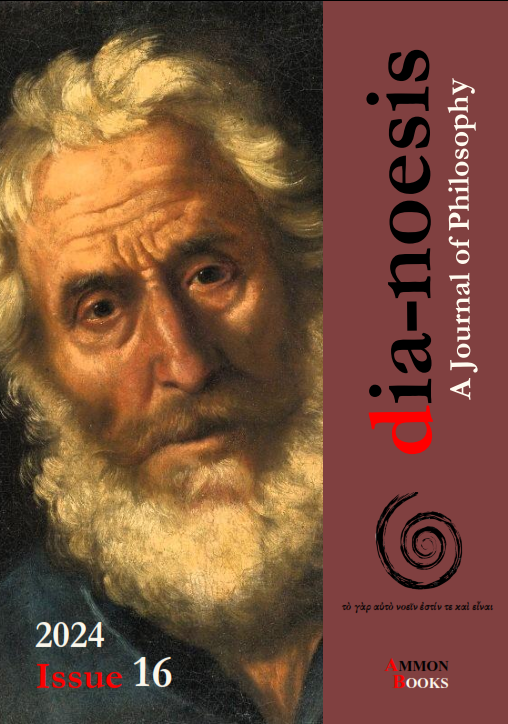The “intentional” benevolent self-sufficiency of the One according to Plotinus

Abstract
The hypostasis of the One in Plotinus’ ontological system involves structural and functional value and contribution. It exists within the boundaries of its “benevolent self-sufficiency”, as a mobile force of production (immanence) and, at the same time, as absolutely oriented and enclosed in itself (transcendence). It is a dual state, which is perpetually stable and, therefore, not subject to any circumstances. At the same time, however, it is also a reality which is circulated in the realm of “intention” since the One is absolutely free to choose the quality of its self-determination. In a different approach: the “intention” of the One ultimately suggests that it is from its domain that the perfect union of nature with the will, of substance with "intention", of "remaining" with "movement", draws its culmination or even its prototypes.
Article Details
- How to Cite
-
Kaproulias, A. (2024). The “intentional” benevolent self-sufficiency of the One according to Plotinus. Dia-Noesis: A Journal of Philosophy, 16, 79–90. https://doi.org/10.12681/dia.39533
- Section
- Articles


